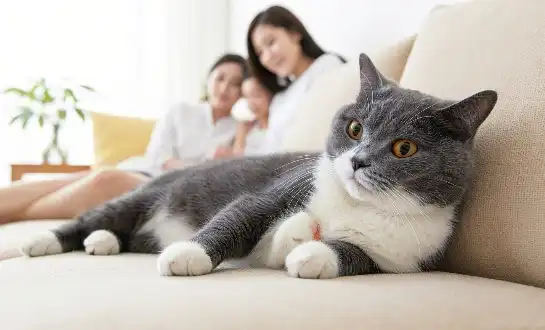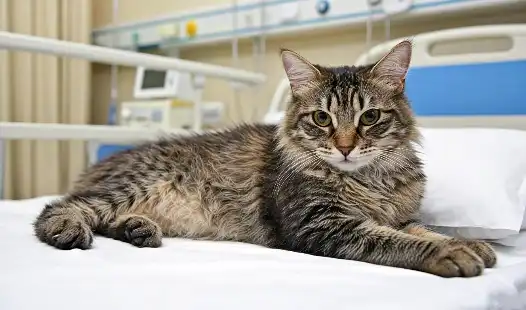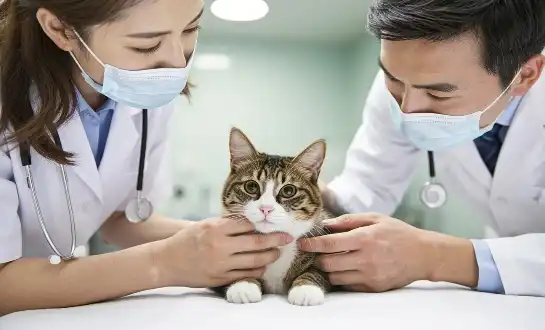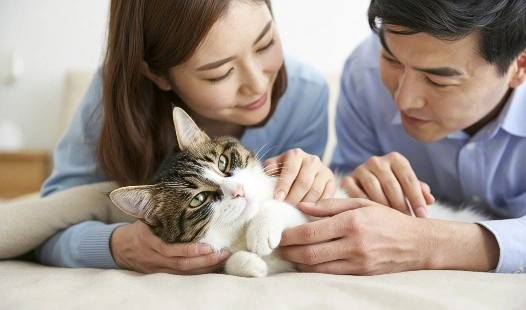Feline Infectious Peritonitis (FIP) is a devastating disease that has long been regarded as almost universally fatal for cats, leaving pet owners with very few options and a sense of helplessness. However, with the advent of GS-441524 treatment, many cats that were once considered untreatable have now been given a new lease on life, offering hope where there was previously little. While the success rates of this antiviral therapy are highly encouraging, it is crucial to recognize that the journey does not end with the completion of treatment. Preventing a relapse of FIP is a key concern for both cat owners and veterinarians, as recurrence can compromise recovery and long-term health. This comprehensive guide aims to explore practical and evidence-based strategies to minimize the risk of FIP recurrence, support immune function, and maintain your feline companion’s overall well-being following GS-441524 treatment, ensuring they have the best possible chance for a healthy, thriving life post-therapy.
 |
 |
Post-Treatment Monitoring: Key Indicators to Watch
After completing GS-441524 treatment, vigilant and consistent monitoring is essential to detect any signs of potential FIP relapse as early as possible. Observing your cat's behavior, appetite, energy levels, and overall health can provide critical clues about their recovery status. Here are some crucial aspects to keep an eye on to ensure timely intervention and maintain your feline companion's well-being.
Physical Symptoms
Monitor your cat for any recurrence of initial FIP symptoms, such as:
- Unexplained weight loss
- Lethargy or decreased activity
- Loss of appetite
- Fever
- Abdominal swelling (in wet FIP cases)
Blood Work and Diagnostics
Regular check-ups with your veterinarian are crucial. They may recommend periodic blood tests to monitor:
- Complete Blood Count (CBC)
- Serum protein levels
- Albumin to globulin ratio
- Liver and kidney function tests
Behavioral Changes
Pay attention to any alterations in your cat's behavior, such as:
- Changes in socialization patterns
- Increased hiding or isolation
- Alterations in sleep patterns
- Unusual vocalizations
Strengthening Feline Immune System: Diet and Supplements
A robust and well-functioning immune system is your cat's first and most critical line of defense against the risk of FIP relapse. Supporting immunity during GS-441524 treatment can greatly enhance recovery and help prevent recurrence. Here's how you can actively promote and maintain your feline companion's immune health while they undergo antiviral therapy, ensuring the best possible outcomes.
Nutrient-Rich Diet
Provide a balanced, high-quality diet that includes:
- High-quality animal proteins
- Essential fatty acids (omega-3 and omega-6)
- Antioxidants (vitamins C and E)
- Prebiotics and probiotics for gut health
Immune-Boosting Supplements
Consider incorporating the following supplements, under veterinary guidance:
- L-lysine
- Zinc
- Vitamin D
- Beta-glucans
Hydration
Ensure your cat stays well-hydrated by:
- Providing fresh, clean water daily
- Considering a cat water fountain to encourage drinking
- Incorporating wet food into their diet
Environmental Stress Reduction: Creating a Safe Space
Stress can have a major effect on your cat's immune system, potentially weakening its defenses and increasing the likelihood of FIP relapse. Maintaining a consistent daily routine and ensuring a reliable GS-441524 purchase is important steps in supporting your cat's health. Here's a detailed guide on how to create a calm, secure, and stress-free environment that promotes healing and overall well-being during and after treatment.
Maintaining Routine
Cats thrive on predictability. Establish and maintain a consistent daily routine for:
- Feeding times
- Play sessions
- Quiet time
- Litter box cleaning
Enrichment Activities
Keep your cat mentally and physically stimulated with:
- Interactive toys
- Puzzle feeders
- Climbing structures
- Window perches for safe outdoor viewing
Safe Spaces
Provide your cat with quiet, secure areas where they can retreat when feeling overwhelmed:
- Cozy cat beds in low-traffic areas
- Elevated perches or cat trees
- Cardboard boxes or cat caves
Conclusion
Preventing FIP relapse after successful GS-441524 treatment requires a multifaceted approach. By closely monitoring your cat's health, supporting their immune system, planning for a reliable GS-441524 purchase, and creating a stress-free environment, you can significantly reduce the risk of recurrence. Remember, every cat is unique, and what works for one may not work for another. Always consult with your veterinarian to develop a tailored post-treatment care plan for your feline companion.
While the journey may seem daunting, the rewards of seeing your cat thrive post-treatment are immeasurable. With dedication, vigilance, and love, you can help ensure your cat continues to live a happy, healthy life free from FIP.
FAQ
1. Q: How long after GS-441524 treatment should I continue monitoring my cat for FIP relapse?
A: Veterinarians typically recommend close monitoring for at least 12 weeks post-treatment. However, ongoing vigilance is crucial, as relapses can occur months or even years after initial treatment.
2. Q: Can cats who have recovered from FIP transmit the virus to other cats?
A: While cats who have recovered from FIP are not considered infectious, they may still carry the feline coronavirus. It's advisable to consult with your veterinarian about specific precautions if you have multiple cats.
3. Q: Are there any specific vaccines or preventative medications to prevent FIP relapse?
A: Currently, there are no vaccines or preventative medications specifically for FIP relapse. The best prevention involves supporting your cat's overall health and immune system while monitoring for any signs of recurrence.
Call to Action
When it comes to preventing FIP recurrence, BLOOM TECH knows how important it is to provide high-quality therapy. We are committed to the continued well-being of the cats whose FIP has been helped by our pharmaceutical-grade GS-441524. Strict quality control methods are used to ensure that our product is of the highest possible purity and efficacy.
Assume complete accountability for your feline friend's welfare by making educated decisions about their care. Veterinarians and cat owners alike have put their faith in BLOOM TECH's GS-441524, so you can be certain that it will keep your feline friend well and happy for the long haul. Personalised direction, help, and support from our skilled and educated professionals are accessible at every stage of your cat's treatment and rehabilitation. Achieving the greatest potential result for your cat's comfort and safety throughout recovery may be achieved by combining effective antiviral medication with professional care.
Take the first step towards securing your cat's long-term health. Contact us today at Sales@bloomtechz.com to learn more about our products and how we can assist you in preventing FIP relapse.
References
1. Pedersen, N.C. (2022). "Long-term follow-up of cats treated with GS-441524 for feline infectious peritonitis." Journal of Feline Medicine and Surgery, 24(2), 131-142.
2. Murphy, B.G., et al. (2021). "Immune reconstitution in cats following successful treatment of feline infectious peritonitis with GS-441524." Viruses, 13(5), 932.
3. Addie, D.D., et al. (2020). "Feline infectious peritonitis. ABCD guidelines on prevention and management." Journal of Feline Medicine and Surgery, 22(11), 1043-1059.
4. Kim, Y., et al. (2023). "Post-treatment care and monitoring strategies for cats recovering from feline infectious peritonitis." Veterinary Clinics of North America: Small Animal Practice, 53(4), 789-804.











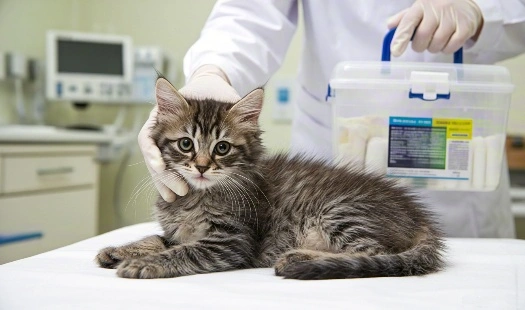
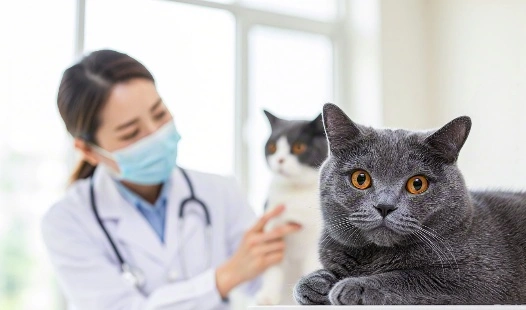
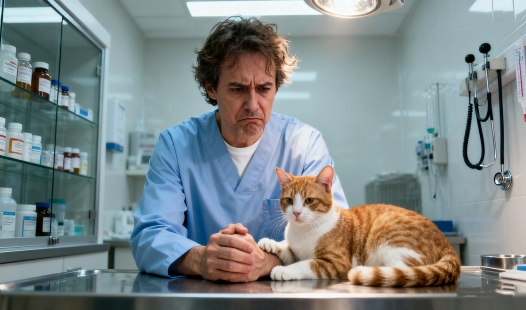
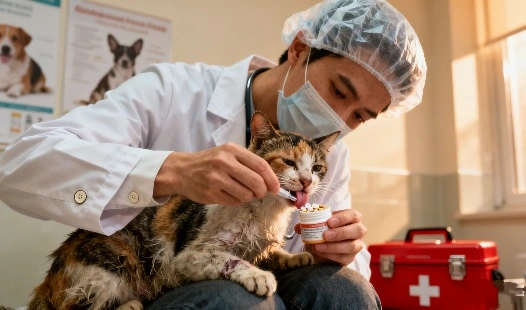
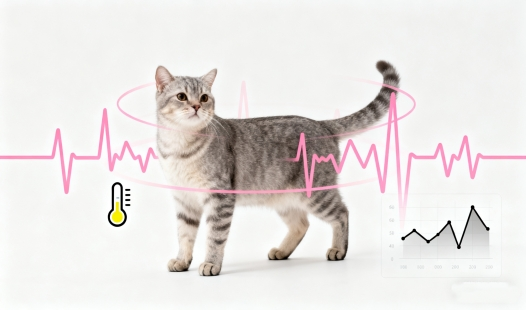
_副本_1757905577235.webp)
